In the UK, owning a home has long been a symbol of stability and financial security. However, saving up for a hefty down payment can be a challenge for many aspiring homeowners. This is where 100% mortgage offers come into play. In this blog post, we will delve into the world of 100% mortgages in the UK, exploring what they are, their advantages and disadvantages, and factors to consider before opting for one.
What are 100% Mortgages?
A 100% mortgage, also known as a no-deposit mortgage, allows borrowers to secure a home loan without having to put down a deposit. In essence, it covers the entire purchase price of the property, enabling buyers to get on the property ladder with minimal upfront funds.
Advantages of 100% Mortgages
No need for a substantial deposit: The most apparent advantage of a 100% mortgage is that it eliminates the need for a large deposit. This can be especially helpful for first-time buyers or individuals who have struggled to save a significant amount of money.
Entry into the property market: 100% mortgages offer a lifeline for those who have a stable income and can afford monthly mortgage repayments but lack the initial deposit. They provide an opportunity to step onto the property ladder and start building equity.
Greater buying power: With a 100% mortgage, borrowers may be able to afford a more expensive property than they would with a traditional mortgage requiring a substantial deposit. This can broaden the range of homes available to potential buyers.
Disadvantages of 100% Mortgages
Higher interest rates: Since 100% mortgages carry a higher risk for lenders, they often come with higher interest rates compared to mortgages with a significant deposit. This means borrowers may end up paying more in interest over the long term.
Limited availability: In recent years, 100% mortgage offers have become less common due
to stricter lending criteria and market conditions. They are typically offered to borrowers with
a good credit history and a stable income.
Negative equity risk: Without a deposit, borrowers have little to no equity in the property
initially. This means they are more susceptible to negative equity if property prices decline.
Negative equity occurs when the outstanding mortgage balance exceeds the property’s
value.
Factors to Consider
Affordability: While 100% mortgages can be tempting, it is crucial to consider whether the
monthly repayments are affordable within your budget. Analyse your income, expenses, and
financial stability to ensure you can comfortably meet the mortgage obligations.
Future financial planning: Evaluate your long-term goals and financial aspirations. A 100% mortgage may allow you to enter the property market sooner, but it’s important to consider how it aligns with your future plans, such as saving for retirement or other investments.
Alternative options: Explore other mortgage options, such as shared ownership schemes, Help to Buy, or government-backed initiatives that provide assistance to first-time buyers. These programs may offer more favourable terms and a lower risk profile.
Conclusion
100% mortgage offers can be an attractive solution for individuals who are eager to own a home but lack the necessary deposit. They provide a pathway to home ownership, albeit with some drawbacks to consider. Before committing to a 100% mortgage, it is vital to carefully evaluate your financial circumstances, weigh the pros and cons, and explore alternative options that may be better suited to your needs. Ultimately, finding the right mortgage is about striking a balance between your present circumstances and your long-term financial goals.
Want to know more about your options for a 100% mortgage? The team at Hub Financial can talk you through all the variables to help you maximise your potential financial flexibility. We’re available 6 days a week and are ready and eager to help.





